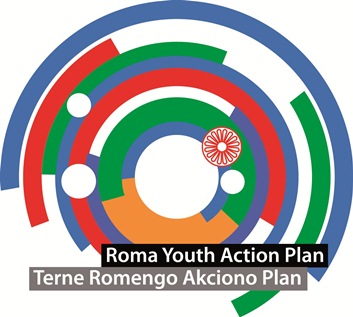Roma Young People Participating to Combat Hate Speech and Antigypsyism
The following example is about a group of 20 young Roma who took on the role of monitoring hate speech in universities and in the media in Bulgaria. This example clearly shows how participation includes an important element of support (training, in this case) and also an important element of opportunity. Furthermore, this example is very important when it comes to the situation of Roma rights, as youth participation in this case was a means of combating antigypsyism. Finally, this example is also linked with the reaffirming of Roma identity. Many young people were no longer comfortable in saying they were Roma; this project gave them the self-confidence to do so.
Keywords for participation: Support / Opportunity / Identity
Hate Speech and Antigypsyism
Across Europe, the levels of hate speech directed toward Roma is a worrying and frightening trend that has gained momentum in recent years; it is being particularly felt by young Roma in Bulgaria. A lot of prejudice and discrimination is expressed through media and politics. Particularly alarming is the anti-Roma populist and nationalist political speech-making which is quickly spread through media publications, television and radio.
Integro conducted a study amongst young Roma and found that students, especially those who are successful, are ashamed to declare their Roma identity. They found that many educated young Roma prefer to be anonymous in terms of their ethnicity. For many young people, this situation is intensified because they lack positive role models in the Roma community with whom they can identify and be proud of.
The knock-on effect of this publicly supported discrimination is that many young Roma see every rejection as a form of prejudice or discrimination, while more generally young Roma are constantly exposed to such discrimination and antigypsyism, and are becoming more sensitive to it. In both scenarios the young people themselves either start to create barriers to the rest of the community and/or distance themselves from their cultural and ethnic identity.
Integro Association – Bulgaria
Integro Association (Integro) was established in October 2002. The organisation’s mission is to promote respect and equality for Roma. Their activities are based on developing active citizenship in Roma communities and ensuring adequate representation of Roma people at all levels of decision making. They have considerable experience in addressing anti-Roma attitudes, issues of social exclusion, and human rights violations. They actively work on creating conditions for dialogue and co-operation with local authorities and national institutions in Bulgaria. This includes empowerment of individuals and groups both for leadership and for grassroots mobilisation. Part of the work of Integro has a focus specifically on young Roma.
Curbing Antigypsyism from Local to European Levels
Integro developed a project entitled Curbing Antigypsyism from Local to European Levels. The project operated from 2013 to 2015 and was funded by the Open Society Foundation. In general, the project aimed at combating antigypsyism in Bulgaria. More specifically it encouraged a response and reaction to hate speech, particularly televised hate speech and hate speech too often found in universities. The project aimed at developing competences among the Roma community and especially among the young people.
Because of the specific effects these levels of hate speech were having on young people, Integro wanted to directly include young Roma in the project. A number of Roma students were formed into a group, the ‘Young Roma Professionals’ (YRPs). They were trained, coached and supported to react to the widespread antigypsyism found in the media and in their universities. Theirs is an example of youth participation as they moved from getting the space and support to participate to actually using their competences for reaffirming Roma identity and fighting for Roma rights. Young people were very involved in the project and they had to monitor hate speech in the universities and the media.
Participation in Action
Firstly, 20 young Roma were selected through an application process to be the young Roma professionals. Young people were trained and they were offered a six-month internship where they received coaching and training. The training of the YRPs included other Roma activists in order for the YRPs to get to know and understand that their work was part of a bigger picture and that they are not alone. They became engaged in training activities on presentation and communications skills, so that they could be ready to communicate with the media. They also improved their skills in verbal communication in order to be able to enter into dialogue and discussions with peers, policy makers and institutions on issues of discrimination against Roma. Other training courses included training on media monitoring, and monitoring in the universities, and training in anti-discriminatory practice.
The young people then began to monitor hate speech and antigypsyism in the universities and the media.
This example underlines the importance of training for young people to be able to participate fully, especially when it comes to complex issues, such as hate speech. Furthermore, in this example, the connection with other Roma activism processes was also important in order for the Roma young people to feel part of a bigger movement for Roma rights.
Universities
The YRPs were responsible for making contact with the Rectors of the different universities, informing them of the lectures that were monitored and the findings of the monitoring. Where possible and appropriate, they would arrange meetings in order to deepen discussions on the issues and to push for action to be taken. Where discrimination and antigypsyism were identified, they were responsible for informing the Commission for Protection Against Discrimination.
The YRPs also created public debates in the different universities on discrimination and antigypsyism. They invited various personalities, politicians and university staff to the debates, as well as fellow students. Open letters on the issues faced by young Roma in the universities were sent to the Ministry of Education, Parliament, and various foreign embassies. They went through teaching materials in order to identify hate speech, discriminatory attitudes and antigypsyism sentiment, and to report it. The YRPs organised street actions and protests with the student bodies to highlight the issues.
Media
The YRPs were responsible for monitoring television broadcasts and electronic media in general. They developed competences for analysing different broadcasts, to be able to identify not just the overt hate speech but also to identify the latent antigypsyism underlying many of the broadcasts they monitored. Where discrimination was identified, they would prepare reports for the Commission for Protection Against Discrimination (CPAD), the Council for Electronic Media (CEM), the State Prosecutor, the Ministry of Interior and the Sofia Police Directorate. The YRPs attended a number of open meetings with both CPAD and CEM in order to present their findings and push for action to be taken. The YRPs also participated in a number of TV and radio broadcasts addressing the issues of discrimination and antigypsyism towards young Roma.
The work of the YRPs continues. Their participation moved from being embedded in a specific Integro project into a practice of activism. Their aim is to maintain and generate immediate reactions by Roma organisations and the Roma coalition to any abuses and elements of antigypsyism.
Outcomes
Young Roma involved in the project, either directly as a YRP or those who came into contact with the project, have become more aware of hate speech, especially the more subtle approaches of discrimination and antigypsyism. Many of the young Roma have become empowered to respond to and address hate speech and discrimination in the media and at the universities, using institutional mechanisms to do this. The participation of the 20 young people became an example for others. The work of the 20 YRPs in the project also led to further participation at the local level. In the municipalities of Kotel, Viatovo, Isperih and Zavet, the YRPs engaged in dialogue with the local authorities and presented, to the respective mayors, proposals for activities and policies to be developed that would address various issues affecting Roma youth. In two of the municipalities the proposals were accepted by the mayors.
Importantly many young Roma, through their exposure to this project and the work of the YRPs, have come to understand and recognise the discrimination they face much better and, as a result, support themselves in the reflection of their own identity. Participation has led in this case to two extremely important outcomes: the reinforcement of Roma young people’s identity and the reinforcement of their competences to combat human rights violations.






